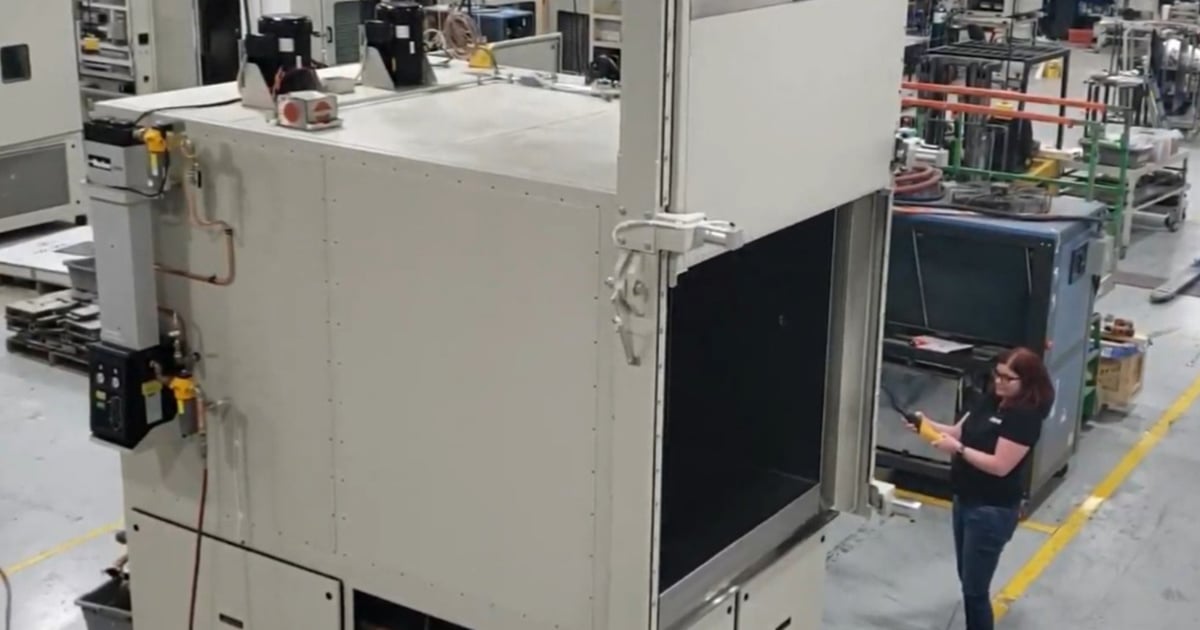AGREE Test Chambers Vs. Portable Conditioning Units

Testing isn’t always limited to exposing products to specified environmental conditions. Companies in the defense, automotive, telecommunications, or electronics industries (and beyond) often require a vibration component as part of their reliability testing.
AGREE test chambers were designed for this purpose. They can perform as standalone temperature and humidity chambers or with an added vibration component.
An AGREE chamber isn’t your only option for vibration testing, though. Companies have found success with portable conditioning units (PCUs) that condition enclosed spaces. PCUs enable you to effectively test particularly heavy or tough-to-move devices, products, or components without needing to fit them into a test chamber workspace.
If you need to add a vibration condition to your testing, consider the key differences between AGREE test chambers and PCUs, and the advantages of each.
AGREE Test Chambers
The AGREE moniker has nothing to do with concurrence, although it’s a nice connotation: In conducting reliability tests with an AGREE chamber, your team can ‘agree’ that products perform (or fail) in specified conditions.
AGREE is actually an acronym that derives from the chambers’ origins. They were originally designed to test the reliability of military equipment. The name comes from the Advisory Group on Reliability of Electronics Equipment of the U.S. Department of Defense.
Today, multiple industries utilize AGREE test chambers to conduct a variety of tests, with vibration added to the specified environmental conditions.
For example, an electric vehicle company could test its large battery component in an AGREE chamber in extreme heat and humidity while adding vibration to simulate travel across bumpy roads.
AGREE chambers often feature space below the testing compartment to accommodate shock vibration tables for this purpose.
Whereas PCUs are mobile and attach to designated testing enclosures, AGREE chambers are singular units that stay in one place. They offer the following advantages over PCUs:
- Every aspect of the chamber is optimized for this sort of testing with strong seals to ensure proper conditioning.
- There’s a short setup time: Simply place the product inside the chamber, and attach it to the fixture.
- You can easily observe the DUT through a window, or by opening the door.
There’s also something to be said about the appearance. The connection of tubes between the PCU and enclosed space can look unsightly while AGREE chambers are clearly professional, impressive industrial units.
Having said all of that, you will pay a greater upfront cost for an AGREE chamber, and it may not be right for your needs.
Portable Conditioning Units (PCUs)
The biggest advantage to purchasing a PCU over an AGREE chamber, beyond the cost savings, is the mobility and adaptability. AGREE chambers stay in one place while PCUs can turn any enclosed space into a testing area. This enables users to condition overly cumbersome or heavy products, rather than place them into a test chamber, and accommodate a greater variety of devices as there’s no built-in limit on volume. You can also store PCUs easily when they’re not in use.
However, there are downsides. It starts with the setup time. In addition to preparing the device, you’ll need to confirm the PCU is attached properly and sealed. Speaking of those seals, they’re not always foolproof and can leak air.
Watch out for those hot, humid days, too. These can lead to frost build-up if the PCU is running below freezing and cause the refrigeration coils to ice up.
The Importance of an Experienced Test Chamber Manufacturer
One of the differences we didn’t mention between AGREE test chambers and using a PCU is that you could build your own PCU testing system. In doing so, you assume associated risks, to your safety as well as the accuracy of your data. Even the most well-thought-out systems won’t have the same repeatability or quality as professionally built ones.
That’s why it’s so important to consult an experienced test chamber manufacturer when you need to add vibration to your testing.
Associated Environmental Systems has customized AGREE test chambers for companies with exacting specifications. Or look at AES PCMs, a line of portable conditioning units for when you need a flexible test environment. Work with AES to design and build the perfect test enclosure for the purpose of attaching a PCU.
No matter your testing needs, contact us today. AES service is available to travel onsite across the country for maintenance, installation, repairs, and support.


